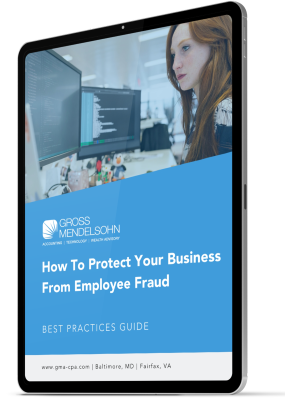Shohei Ohtani is a household name in Major League Baseball. One of the league’s most formidable players, Ohtani is known as a two-way player who can pitch and hit. Unfortunately for Ohtani and the Los Angeles Dodgers, he’s also known as the victim of a massive theft.
Last week, Ohtani’s long-time Japanese interpreter, Ippei Mizuhara, was fired from the Dodgers organization amid allegations of stealing in the ballpark (no pun intended) of $4.5 million dollars from the star player.
There are sports gambling implications involved in these allegations, which I won’t cover in this article. Instead, we’ll focus on the theft of funds, why employees commit fraud and what businesses can do to prevent it.
Theft of Funds: Was There a Lack of Oversight?
In an interview with ESPN, Mizuhara, the interpreter, admitted to having gambling debts and said Ohtani paid them on his behalf and authorized the payments.
Ohtani has since disputed these claims by Mizuhara and maintains that the funds were in fact stolen. According to the interview with ESPN, Mizuhara claims there were eight or nine payments over the course of several months. If the payments were not authorized, and this happened over the course of several months, there was likely a lack of oversight of cash disbursements that created an opportunity for a theft to occur.
If lack of oversight is indeed a factor here, this theft involving the MLB interpreter is reminiscent of a Jacksonville Jaguars employee allegedly stealing upwards of $22 million from the NFL team over a four-year period.
Why Do Employees Commit Fraud?
In the Fraud Examiners Manual, Dr. Donald Cressey hypothesizes that if the three following elements are present, a person is highly likely to engage in fraudulent activities.
1. Financial pressure
Financial pressure could come about because of something personal such as debt, addiction or maintaining an extravagant lifestyle. In an interview with ESPN, Mizuhara admitted to having gambling debts, which can be the source of a financial motive to commit fraud.
2. Opportunity
Opportunity is generally related to the perceived likelihood of detection, which can occur when there is lack of oversight and a deficiency of financial controls. If the payments from Ohtani’s account were not authorized and they were occurring for several months, then it was likely the interpreter had access, and timely review controls were not in place. This lack of oversight would create opportunity and allow the theft to go undetected.
3. Rationalization
Rationalization is the ability to justify the fraudulent behavior as acceptable. Since rationalization occurs in the mind of the perpetrator, it can often be hard to identify. For example, a hypothetical rationalization by the perpetrator in the Ohtani case would be, “I will take this money now as a loan but will repay it when I win this next bet.”
How Can Fraud Be Prevented?
One of the most effective ways to prevent fraud in organizations is to put procedures in place to increase the perception of detection. When an employee thinks there’s a good chance they will get caught, the opportunity decreases for perpetrators.
The following procedures can help mitigate the opportunity for employees to commit fraud:
-
Strong controls over cash disbursements, such as timely review of bank reconciliations and bank statements, segregation of duties for disbursements and access to financial accounts.
-
Regular audits and reviews of controls and procedures can help identify weakness or gaps. While changes within an organization, such as switching accounting software or employee turnover, can create opportunities for theft, regular reviews can help limit the fraud risk.
-
Employee training and hotlines encourage tips, which are the number one method of fraud detection in occupational fraud cases. Training employees on what to look for and having a mechanism in place to receive fraud-related tips can go a long way in fraud prevention.
Fraud Prevention Tactics for Small Businesses
Fraud doesn’t just occur in large organizations like MLB franchises. In fact, it occurs most often in small businesses, which often lack the resources to put robust internal controls in place.
Our articles, How to Prevent Fraud at Your Small Business and Tips for Preventing Disbursement Fraud In Your Business offer practical advice for business owners.
Need Help?
Our team of Certified Fraud Examiners can help you put measures into place to prevent employee fraud. Contact us online or call 800.899.4623.


